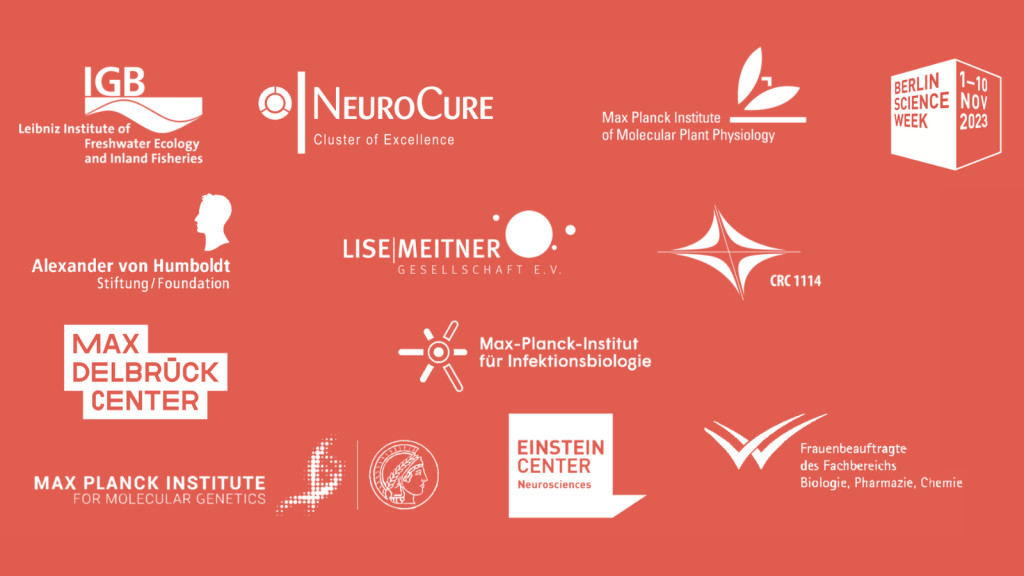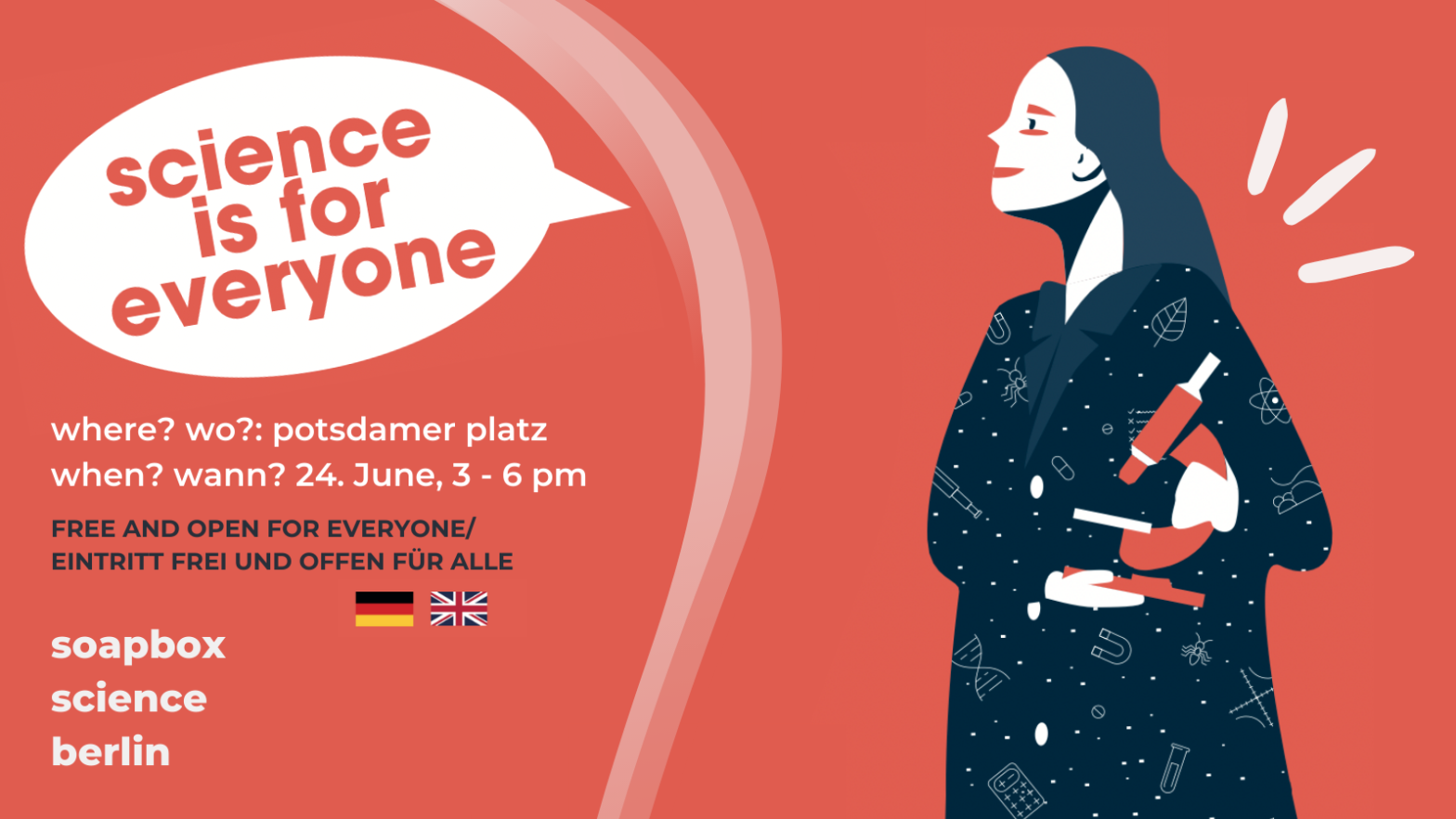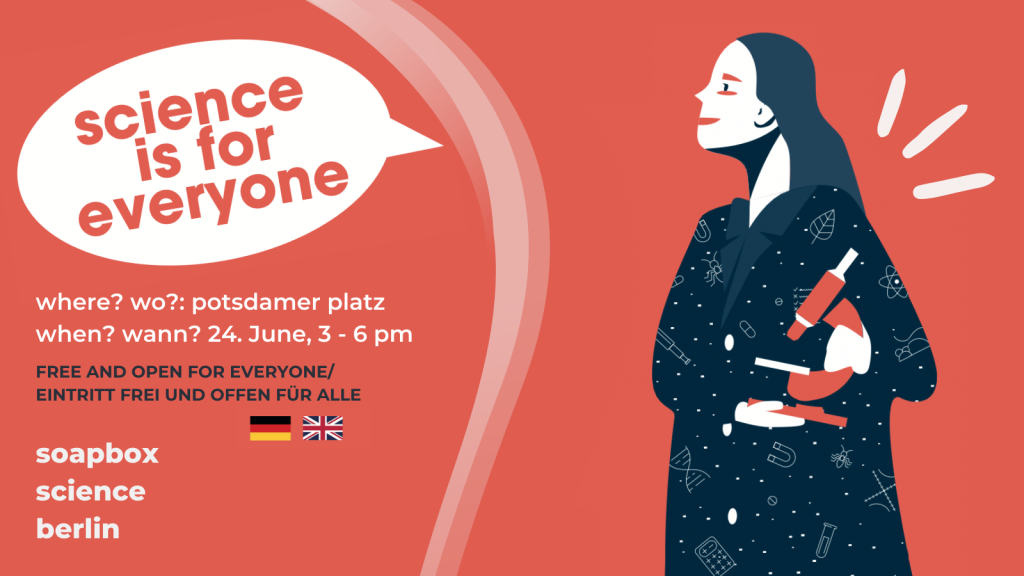
Mark your calendars and get ready for an unforgettable scientific extravaganza! We’re thrilled to announce the return of Soapbox Science Berlin, where science takes to the streets and curiosity knows no bounds. On June 24, 2023, from 3pm to 5pm, join us at Potsdamer Platz (Süd) as we bring together thirteen exceptional women* in science to ignite your passion for knowledge and exploration.
![]() where?: Berlin, Potsdamer Platz (Süd)
where?: Berlin, Potsdamer Platz (Süd)![]() when? : 24. June ’23, 15:00 – 18:00
when? : 24. June ’23, 15:00 – 18:00
Imagine walking through the bustling city streets of Berlin and stumbling upon a captivating spectacle of scientific discourse. Soapbox Science Berlin is breaking barriers and turning public spaces into vibrant hubs of intellectual exchange. With thirteen brilliant women* taking the stage on their soapboxes, prepare to embark on an exhilarating journey of discovery.
This year’s event promises a diverse range of scientific topics that will leave you spellbound. From unraveling the mysteries of dinosaurs and exploring the depths of evolution to understanding the complexities of memory and delving into the enigmatic realms of black holes—there’s something for everyone’s inquisitive mind. Brace yourself for a dynamic and thought-provoking lineup that will challenge your understanding of the world around us.
We are committed to celebrating diversity and promoting inclusivity in science. Our event features an incredible array of speakers, including cis or trans women, queer and non-binary individuals, and underrepresented groups such as black, indigenous, people of colour, and people with disabilities. Soapbox Science Berlin is a platform where barriers are shattered, and voices that have been historically marginalized are amplified.
The best part? It is absolutely free! We welcome one and all, regardless of age, background, or scientific knowledge. Bring your friends, family, and colleagues along, and be prepared to immerse yourself in an atmosphere of discovery and excitement. Don’t forget to bring your burning questions and insatiable enthusiasm—we can’t wait to engage with you!
Here are our speakers:

Dr. Verónica Díez Díaz is a Spanish biologist specialising in sauropod dinosaurs who has been conducting research in Germany since 2015.
In this talk, we will look at how palaeontologists use innovative approaches and devices to reconstruct dinosaurs and how they moved and behaved. Moreover, we will be able to broaden the view of paleontologists beyond these professionals who excavate fossils in the field.
Dr. Joana Grah has a PhD in Applied Mathematics from the University of Cambridge, UK, and currently works as a postdoc at the Centre for Artificial Intelligence in Public Health Research at the Robert Koch Institute. She’s interested in analysing biomedical images using AI methods, advocates for more diverse and ethical AI, and is passionate about science communication and promotion of equity in STEM. Joana will debunk some common myths on AI, explain how a computer sees and analyses an image, and highlight applications in biomedicine.
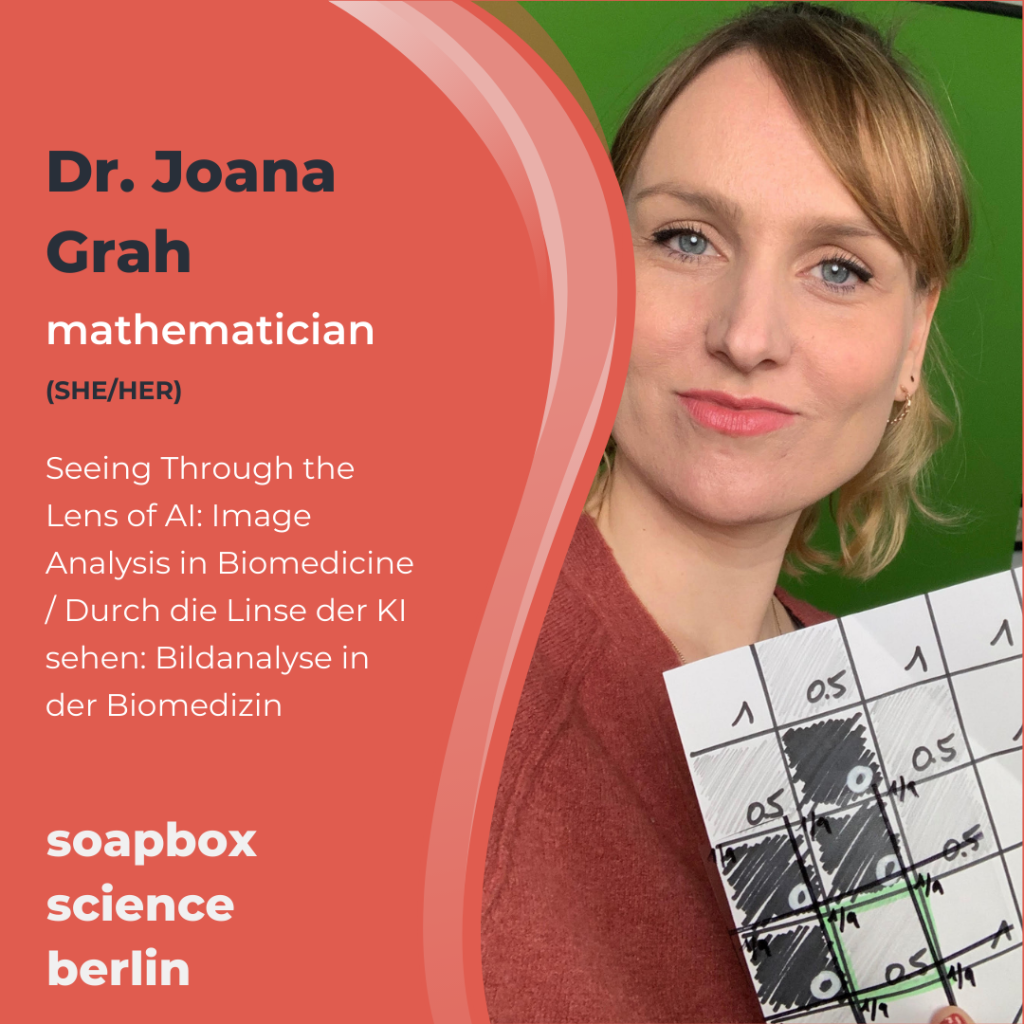
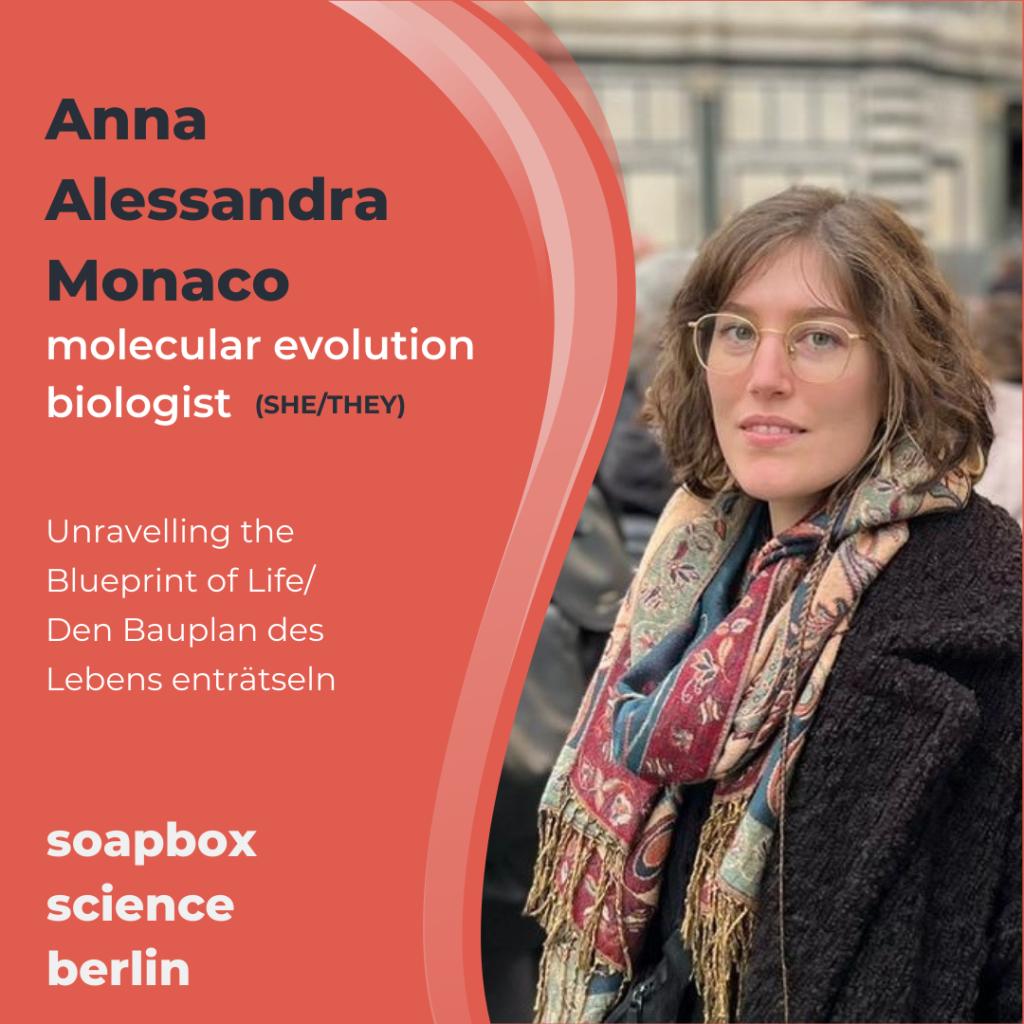
Are you curious about how animals came to have such unique body parts? As a molecular evolution biologist, Anna Alessandra Monaco uses computational skills to decipher the molecular mechanisms of evolution. By decoding the “junk DNA” that was once thought to be unimportant, we are uncovering the blueprint of life.
Join her to discover how our understanding of evolutionary history has led to insights into the construction of the amazing diversity of animal body parts we see today.
Female anatomy is not well known to many people. The vagina seems to be the only organ with a name in the female pelvis. Which other organs are important and where are the vulva and clitoris located? Bring Chief of Medicine PD Dr. Prof. Mandy Mangler all your questions!
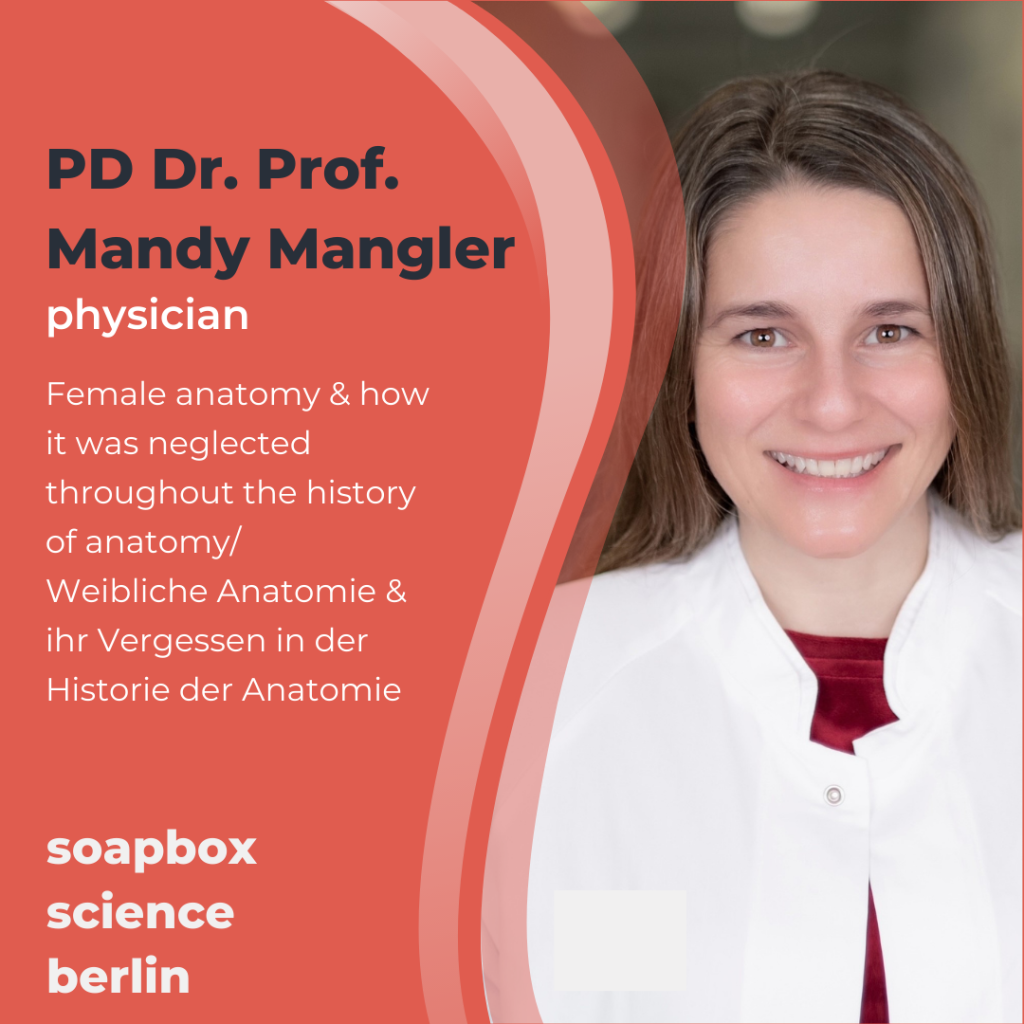
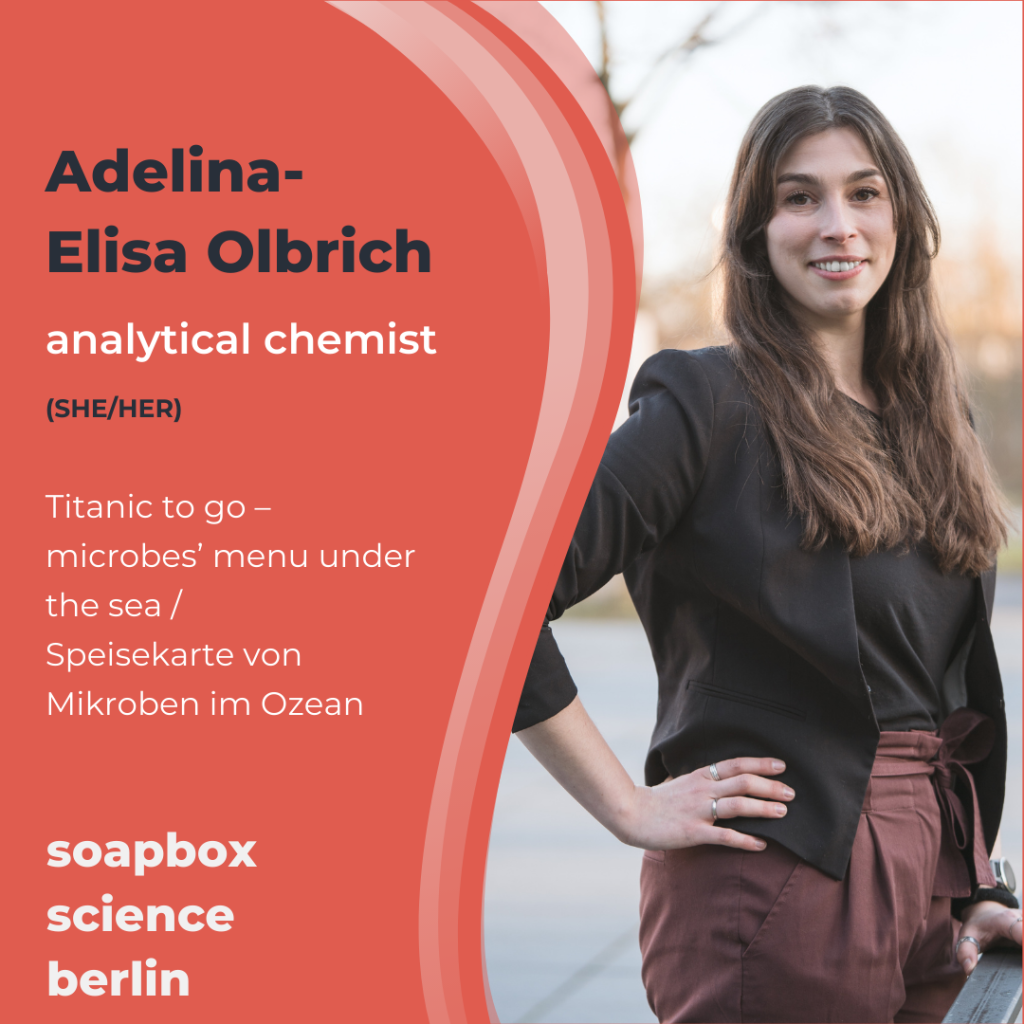
In her PhD in Analytical Chemistry at Federal Institute of Materials Research and Testing/Humboldt University, Adelina-Elisa Olbrich analyses single biological cells and how they interact with their surrounding like material and environment. One of her projects focuses on microbiologically influenced corrosion, or short: bacteria metabolising steel. In her talk, she will clarify if the Titanic will be eaten up by microbes in 100 years and what we can do against it.
Manisha Bissas is a doctoral candidate at the Berlin School of Mind and Brain working on ritual participation and group conformity using immersive virtual reality experiments.
Her talk will focus the influence of social surroundings and group identity on perceptual judgments and how we see the world through group coloured glasses.
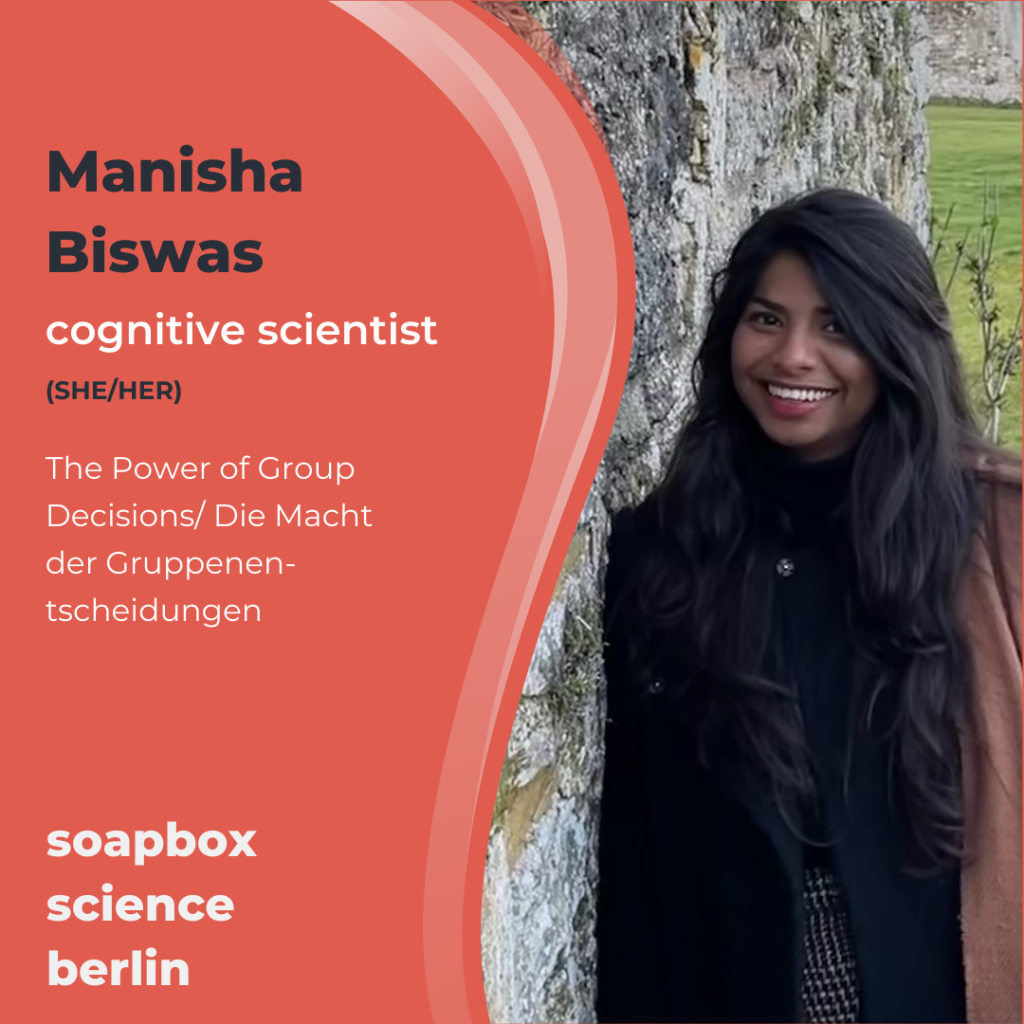
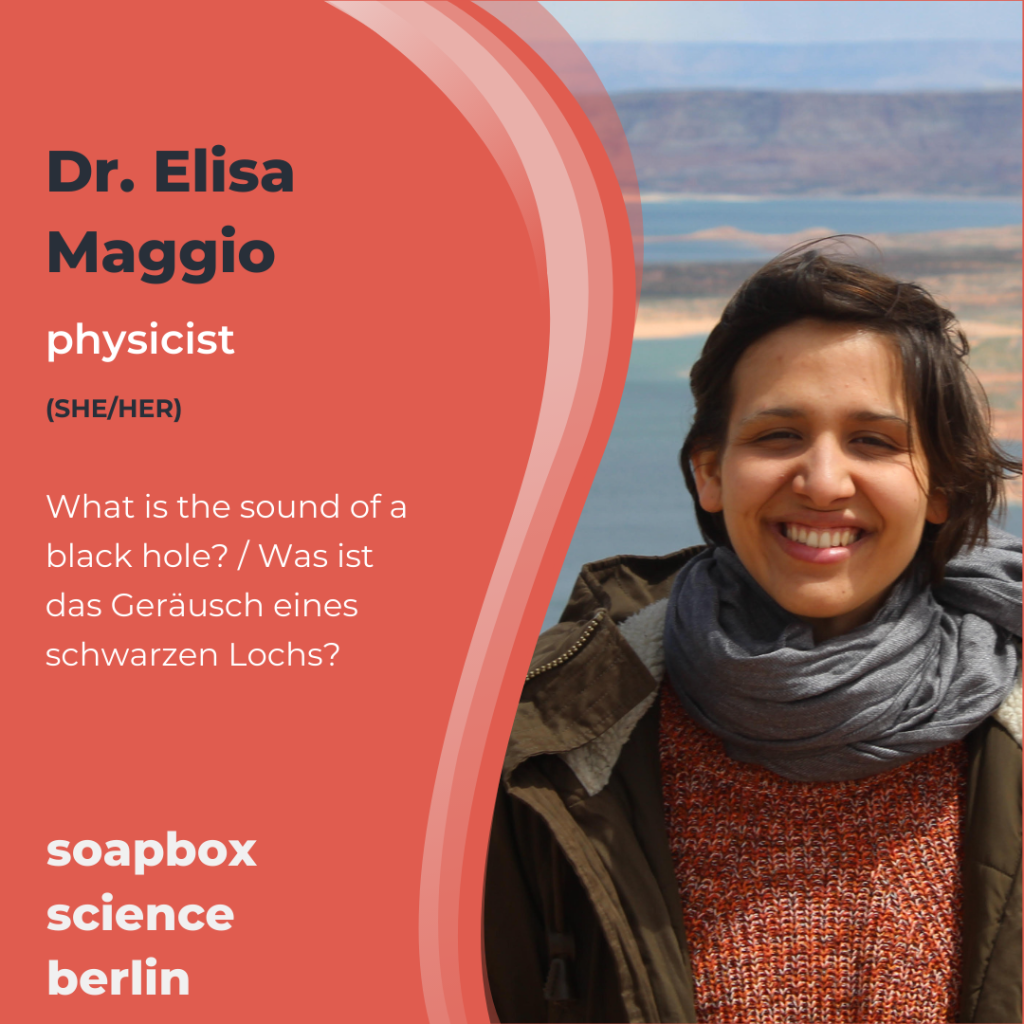
Dr. Elisa Maggio is a researcher at the Max Planck Institute for Gravitational Physics, Albert Einstein Institute in Potsdam, working on tests of general relativity.
What are black holes, and how can we observe these exotic objects in the universe? With gravitational waves, we can learn about the structure of black holes, which can be heavier than our Sun and confined in a region as big as the city of Berlin. Elisa will describe how we can listen to the sound of black holes and how we currently test for their existence with gravitational waves.
Dr. Lynn Govaert is an evolutionary ecologist working at the Leibniz Institute of Freshwater Ecology and Inland Fisheries. Her research focuses on short-term evolution in response to abrupt environmental changes, and how such evolution alters ecological processes & dynamics within freshwater systems. She tests theoretical expectations with small-scale laboratory experiments using unicellular freshwater organisms. These organisms perform key functions in the aquatic food web, and changes in their cell size, behavior and growth capacity can have drastic consequences for other organisms in the aquatic food web, for example, altering predator-prey dynamics.
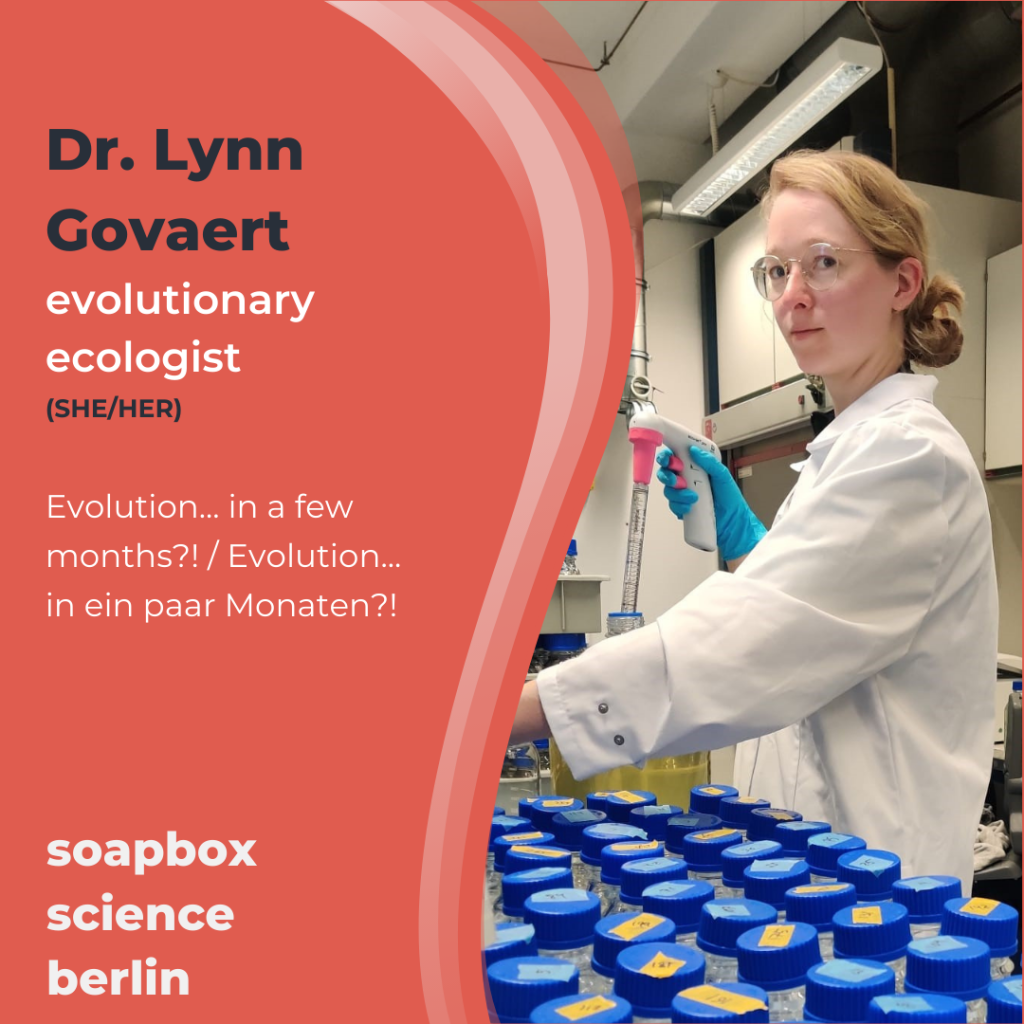
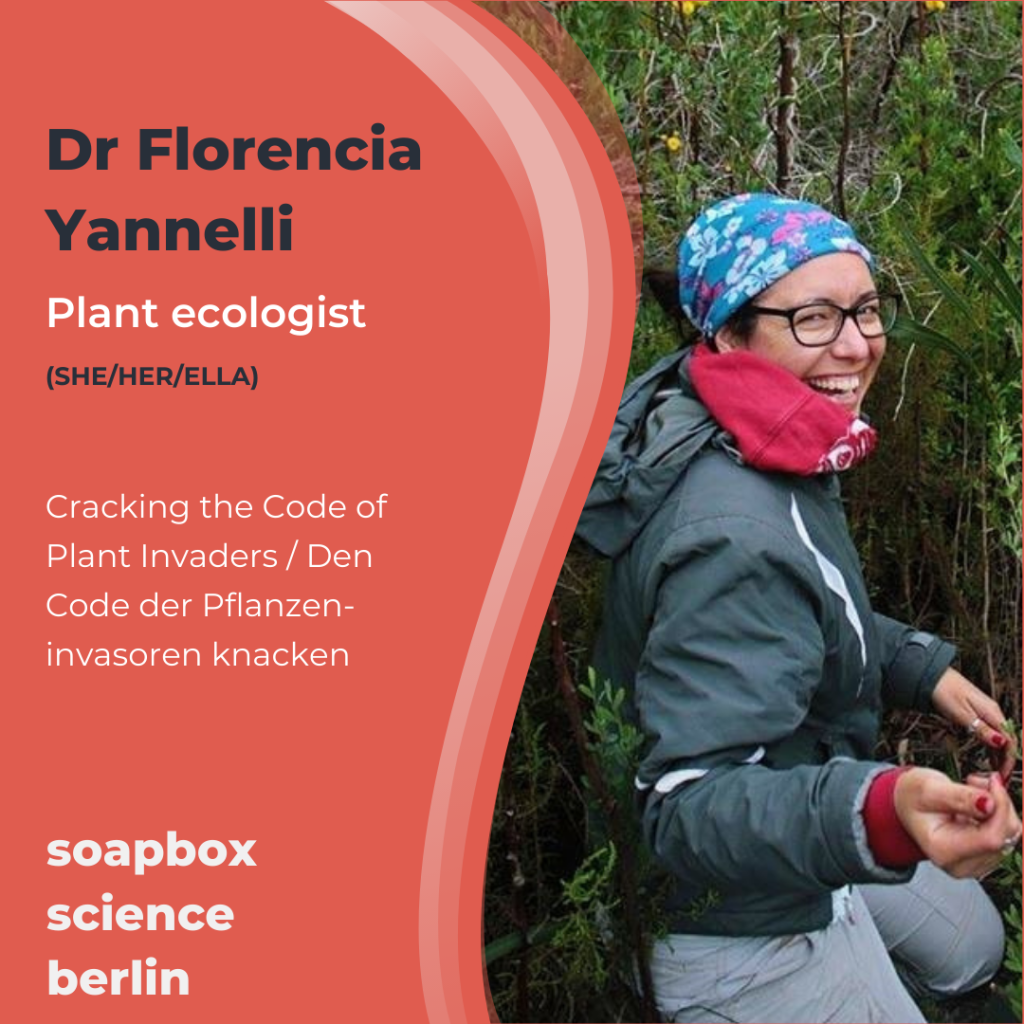
Dr. Florencia Yannelli is a researcher specialising in plant ecology and works at the Ecological Novelty group based at the Freie Universität Berlin.
Alien invasive plants are more ubiquitous than many of us realise, sharing our spaces in cities and nature. Florencia is interested in understanding what makes some alien plants successful invaders. For this, she studies not only the “new” interactions emerging between native and invasive plants but also the role that soil microbial communities might have in helping alien plants dominate our ecosystems.
Samantha Mendonsa & Dr. Inga Lödige work together in the same lab, studying how mRNA molecules are transported within a specialised brain cell called a neuron. Sometimes, mRNTwice the speakers, twice the fun!
Understanding the basic mechanisms of mRNA transport helps us identify what is wrong in a diseased neuron – the first step to finding a cure! During their talk, you can ask them everything you’ve always wanted to know about the topic!
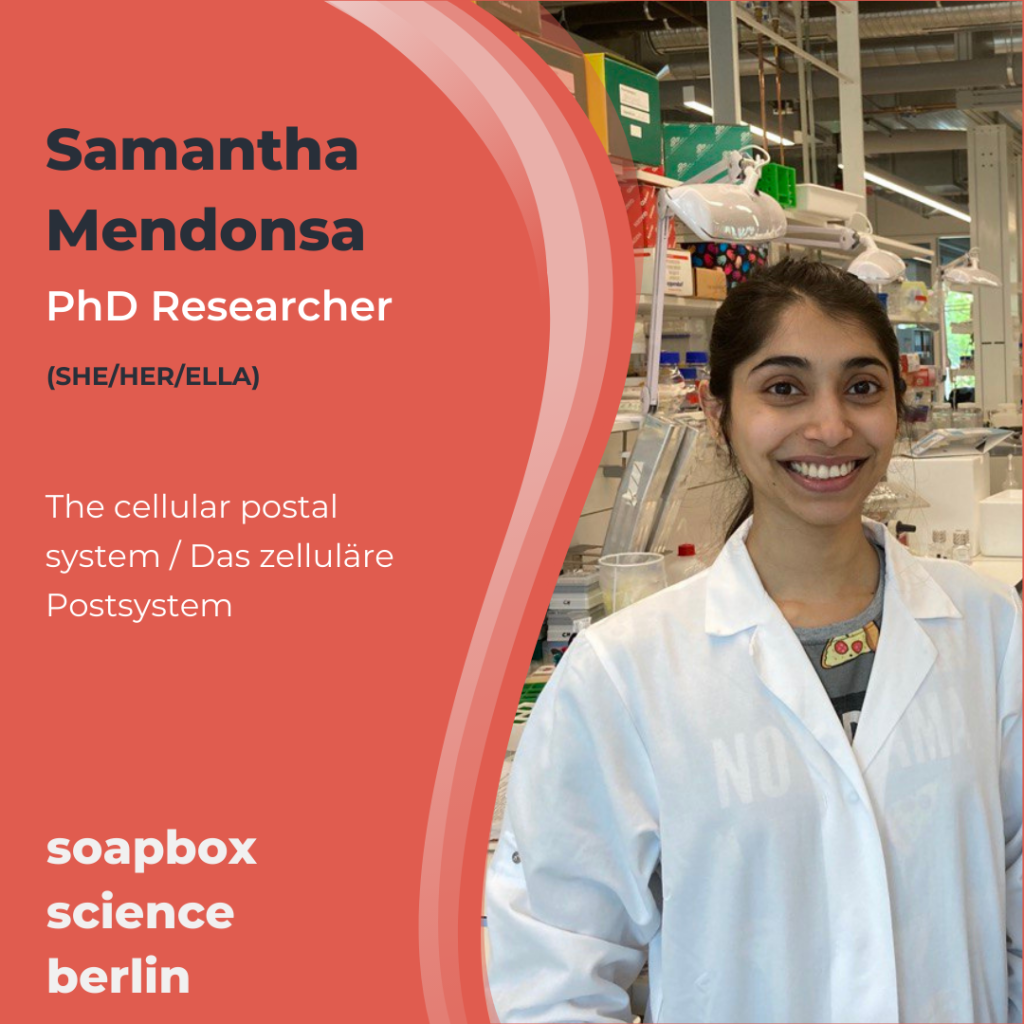

Samantha Mendonsa & Dr. Inga Lödige work together in the same lab, studying how mRNA molecules are transported within a specialised brain cell called a neuron. Sometimes, mRNTwice the speakers, twice the fun!
Understanding the basic mechanisms of mRNA transport helps us identify what is wrong in a diseased neuron – the first step to finding a cure! During their talk, you can ask them everything you’ve always wanted to know about the topic!
With a background in Mechatronics engineering and a Master research degree in Artificial Perception and Robotics, Dr. Aziza Ben Halima got her PhD in medical robotics in the laboratory of medical image processing (LaTIM-Brest-France).
Now, she joined the institute of Robotic and Process control (IRP-Brunswick-Germany) to work as a postdoctoral researcher on robotic manipulation of soft tissues. She will be talking on how robots are introduced nowadays in the fields of medicine to improve healthcare quality.
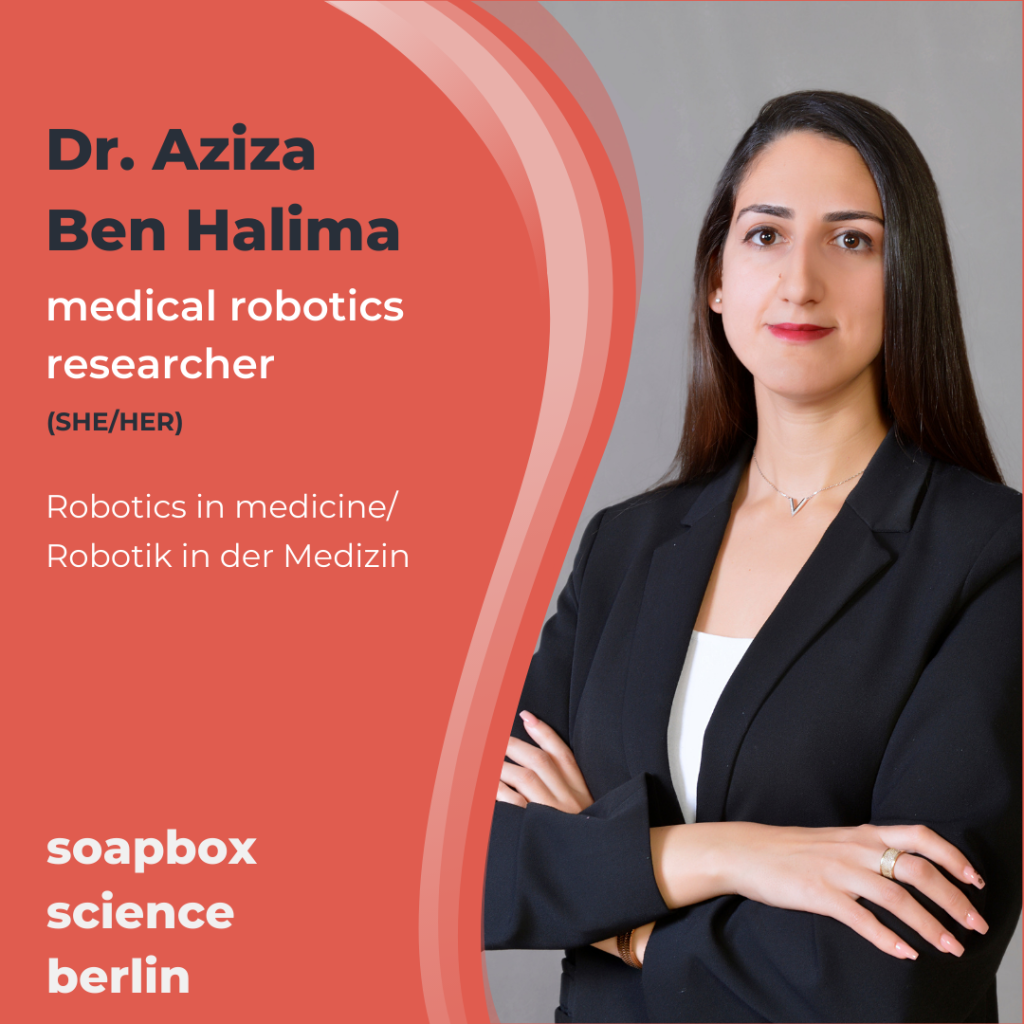
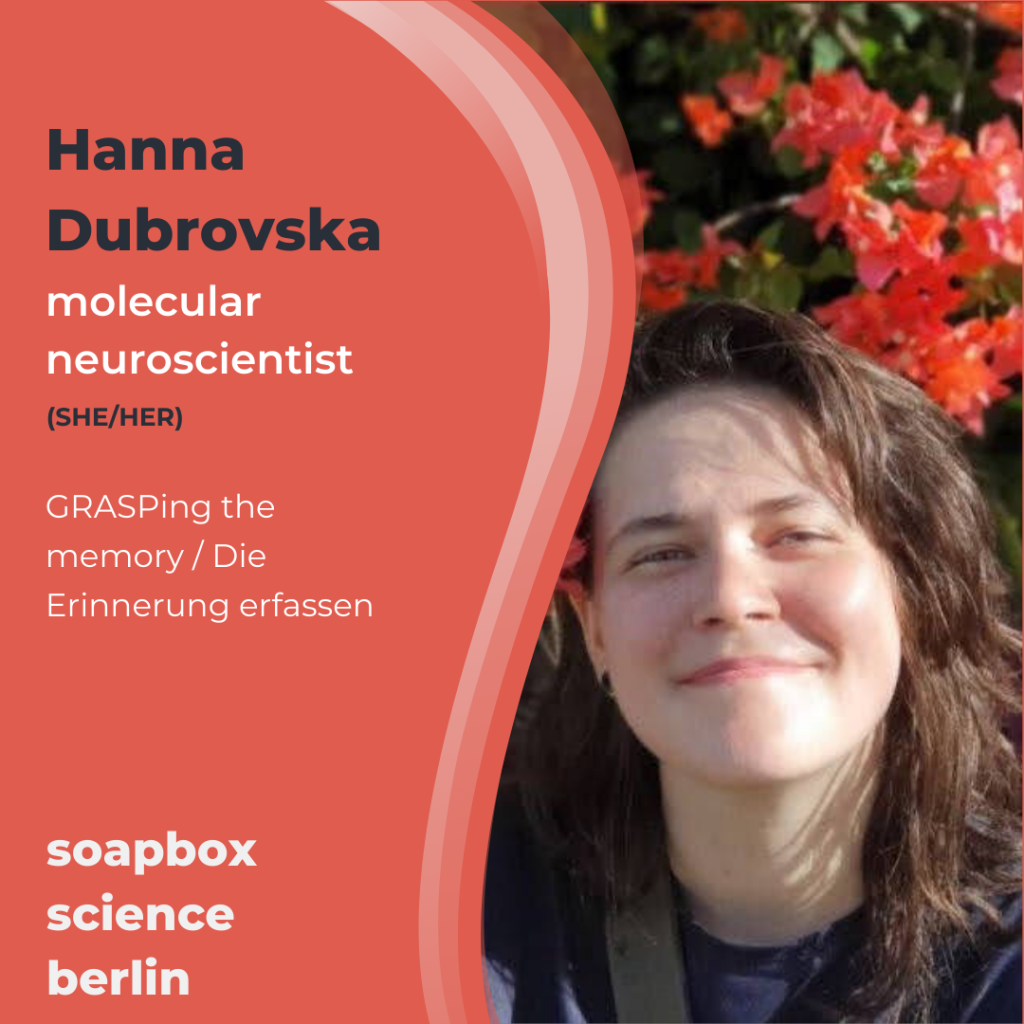
In her PhD work, Hanna Dubrovska is interested in dissecting molecular mechanisms of memory formation and forgetting and looking to find out what memory is in its molecular and genetic core and how it can be improved in diseased and healthy individuals.
Memories can be seen as actual physical representations in our brains as neuronal circuits and in structures called synapses. You will learn what the synapses are, how they are responsible for remembering and forgetting, and to find out where memories live.
Soapbox Science Berlin 2023 is an event like no other, where the streets of Berlin transform into a stage for scientific inspiration. With an awe-inspiring lineup of speakers, an inclusive atmosphere, and a wide range of captivating topics, this event promises to leave an indelible mark on your scientific journey. Mark your calendars, spread the word, and join us on June 24, 2023, from 3pm to 5pm at Potsdamer Platz (Süd) to witness the magic of Soapbox Science Berlin!
*Note: Women includes cis or trans women, queer and non-binary individuals, and underrepresented groups including, but not limited to, black, indigenous, and people of colour, and people with disabilities.
Speaker Schedule:
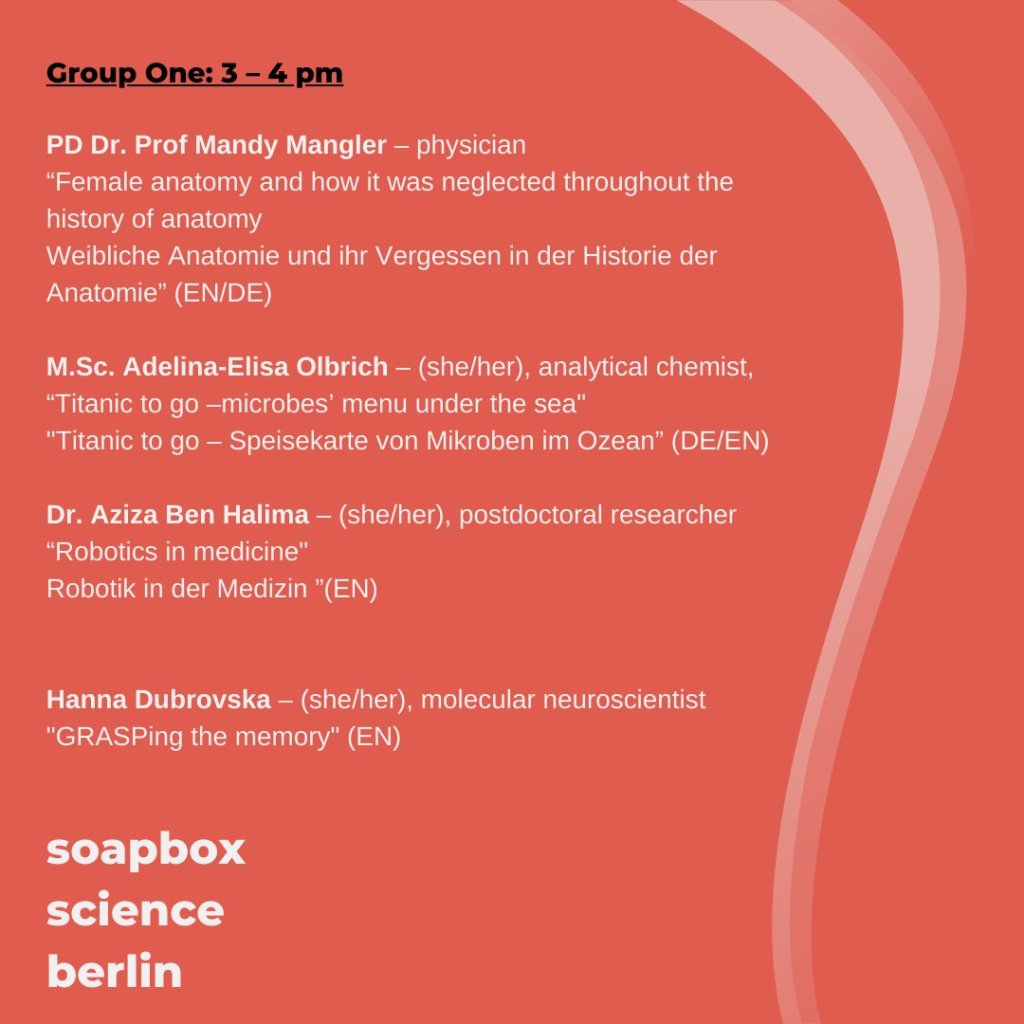
Group One: 3 – 4 pm
PD Dr. Prof Mandy Mangler
Adelina-Elisa Olbrich
Dr. Aziza Ben Halima
Hanna Dubrovska
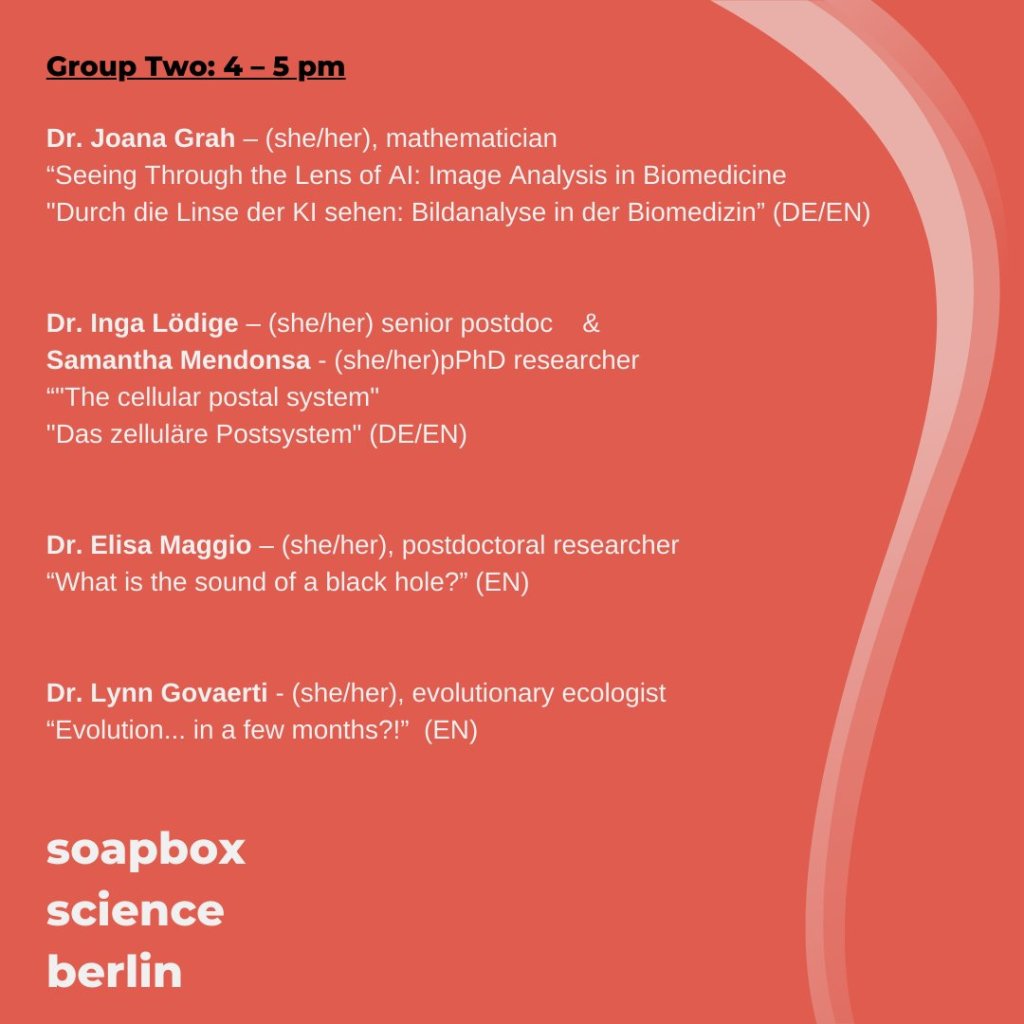
Group Two: 4 – 5 pm
Dr. Joana Grah
Dr. Inga Lödige & Samantha Mendonsa
Dr. Elisa Maggio
Dr. Lynn Govaerti
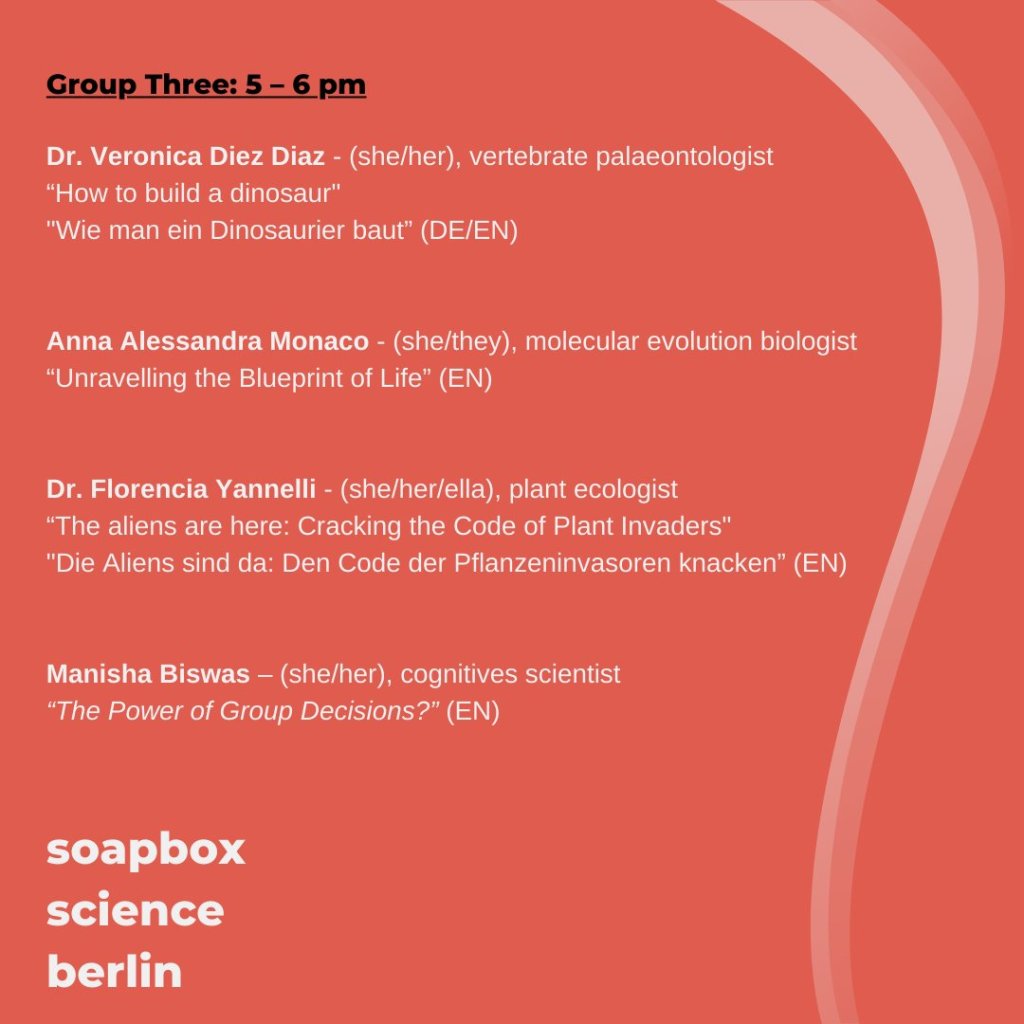
Group Three: 5 – 6 pm
Dr. Veronica Diez Diaz
Anna Alessandra Monaco
Dr. Florencia Yannelli
Manisha Biswas
Location:
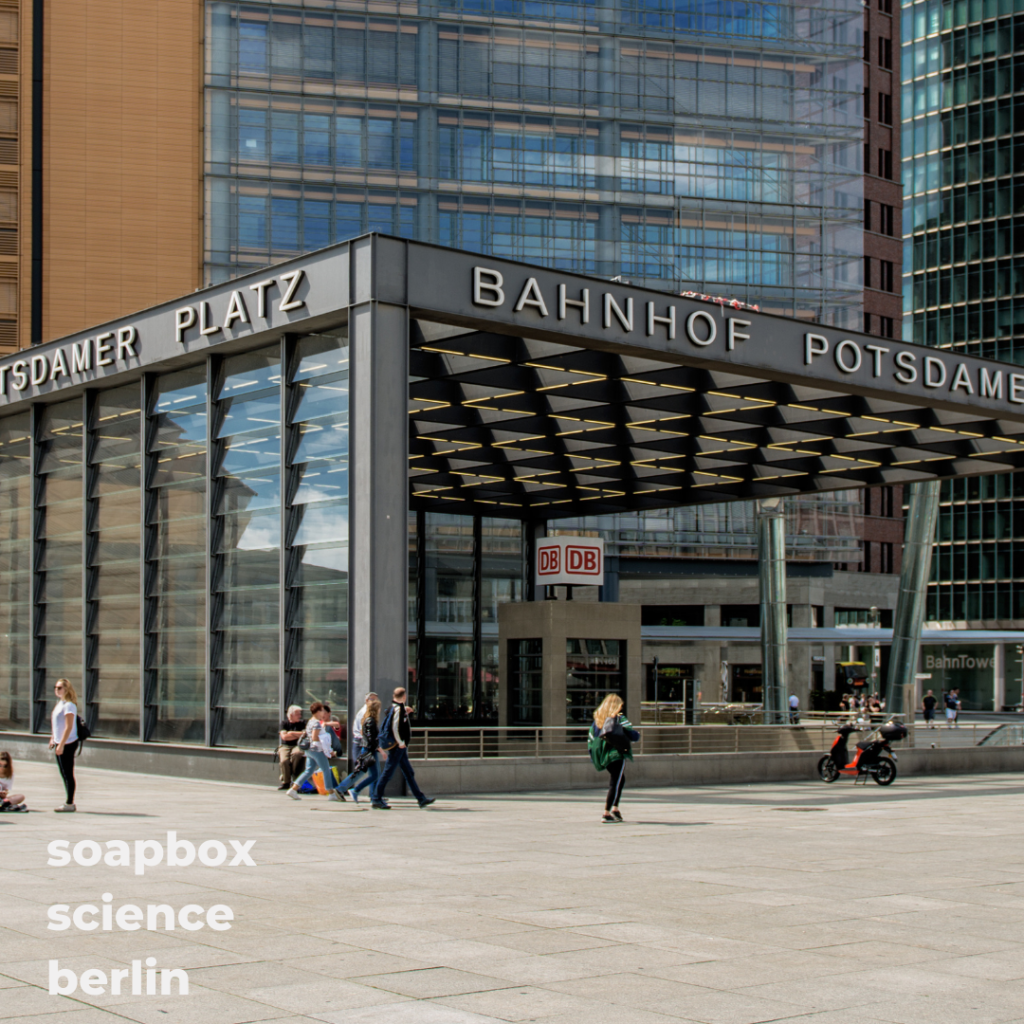
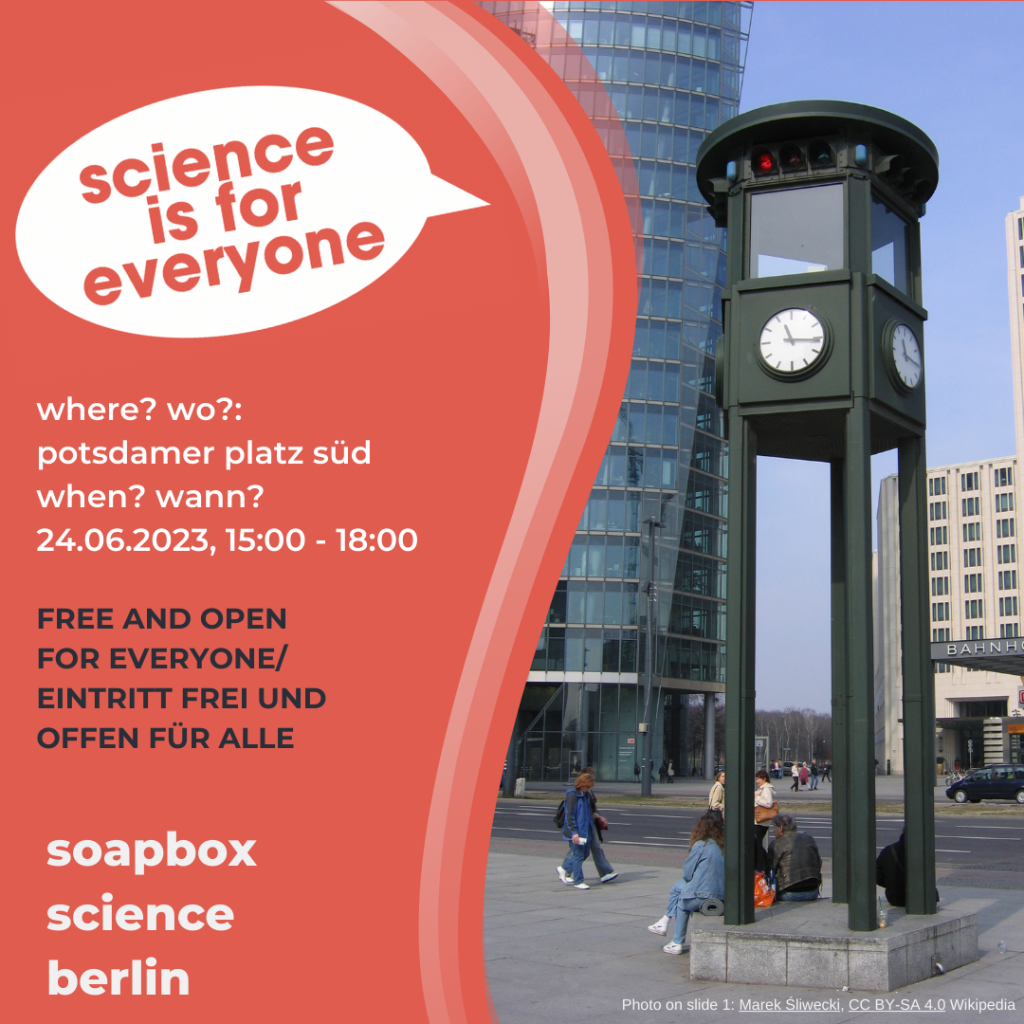

Exact Adress:
Potsdamer Platz Süd, 10785 Berlin
Historische Ampelanlage
Look for our tents and flags
Sponsors:
